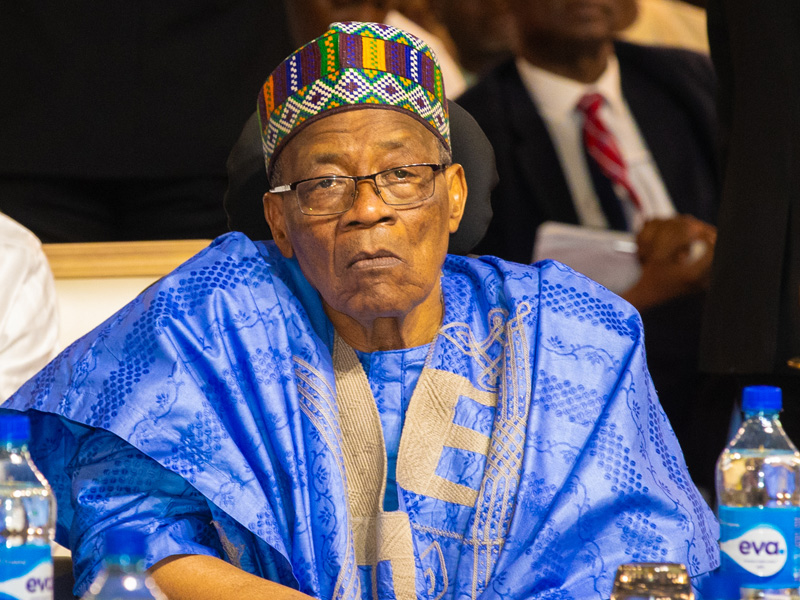Ibrahim Badamasi Babangida (IBB), born on August 17, 1941, is a retired Nigerian Army General and one of the most influential and controversial political figures in Nigeria’s history. A former military ruler, Babangida governed Nigeria from 1985 to 1993, leaving behind a legacy marked by ambitious reforms, bold economic policies, and one of the most contentious political decisions in the country’s history—the annulment of the June 12, 1993, presidential election.
Rise Through the Military Ranks
Hailing from Minna, Niger State, Babangida joined the Nigerian Army in 1962. He was part of the first generation of officers trained in post-colonial Nigeria and quickly rose through the ranks. A skilled strategist, he played prominent roles in several coups that shaped Nigeria’s political trajectory, including the 1975 coup that removed General Yakubu Gowon and the 1976 counter-coup that installed General Olusegun Obasanjo.
By 1985, as Chief of Army Staff, Babangida orchestrated a bloodless coup that ousted then-Head of State, Major General Muhammadu Buhari. He justified the coup on grounds of curbing authoritarianism and restoring civil liberties.
Military Rule and Structural Adjustments
As Head of State, Babangida projected himself as a visionary reformer and adopted the title “President” instead of “Head of State,” reflecting his desire to give a civilian tone to military governance. His administration initiated significant reforms:
Economic Reforms: Under the guidance of international financial institutions, Babangida introduced the Structural Adjustment Programme (SAP) in 1986. The policy aimed to revitalize Nigeria’s ailing economy through deregulation, privatization, and currency devaluation. While SAP sought to stabilize the economy, it also led to widespread hardship due to inflation, job losses, and reduced social services.
Infrastructure and Institutions: Babangida established key institutions such as the Federal Road Safety Corps (FRSC), National Drug Law Enforcement Agency (NDLEA), and the Nigerian Deposit Insurance Corporation (NDIC). He also relocated Nigeria’s capital from Lagos to Abuja.
Media and Press Freedom: He liberalized the media space, allowing for a boom in independent newspapers and radio stations, although his regime still cracked down on dissent when challenged.
The June 12, 1993 Election Crisis
Despite being a military ruler, Babangida promised a transition to civilian rule and began a lengthy and expensive political transition process, creating two government-funded political parties: the Social Democratic Party (SDP) and the National Republican Convention (NRC).
On June 12, 1993, Nigeria held what is still regarded as the freest and fairest presidential election in its history. The unofficial results showed Moshood Kashimawo Olawale (M.K.O.) Abiola of the SDP leading with a wide margin across ethnic and religious lines.
However, on June 23, 1993, Babangida annulled the election, citing legal and security concerns. This decision sparked nationwide outrage, protests, and international condemnation. It is widely believed that elements within the military and political elite pressured Babangida into the annulment out of fear that Abiola’s presidency would disrupt entrenched interests.
Aftermath and Exit from Power
The annulment led to a deep political crisis and the eventual collapse of the transition program. Facing mounting pressure, Babangida “stepped aside” on August 26, 1993, handing over power to an Interim National Government led by Ernest Shonekan. The interim government was soon overthrown by General Sani Abacha in a palace coup, plunging Nigeria into another phase of dictatorship.
Legacy and Controversy
IBB remains a polarizing figure in Nigerian history. His supporters regard him as a strategic leader who tried to modernize Nigeria’s economy and institutions. His critics view him as a cunning and manipulative ruler who prioritized self-preservation over national interest.
The annulment of the June 12 election remains the most defining moment of his regime and casts a long shadow over his legacy. In 2018, the Nigerian government under President Muhammadu Buhari officially recognized June 12 as Democracy Day, honoring Abiola and formally acknowledging the injustice of the annulled election.
In Retirement
Since leaving power, Babangida has largely stayed out of active politics, though he has occasionally granted interviews and issued statements on national issues. He resides in Minna, Niger State, where he remains a respected figure among certain political and military circles.
Ibrahim Babangida’s rule represents a complex chapter in Nigeria’s history—marked by reform, ambition, and controversy. While his government initiated lasting institutional frameworks, his decision to annul the June 12 election stands as a powerful cautionary tale about the dangers of authoritarian interference in democratic processes.
FOLLOW US ON:
FACEBOOK
TWITTER
PINTEREST
TIKTOK
YOUTUBE
LINKEDIN
TUMBLR
INSTAGRAM































